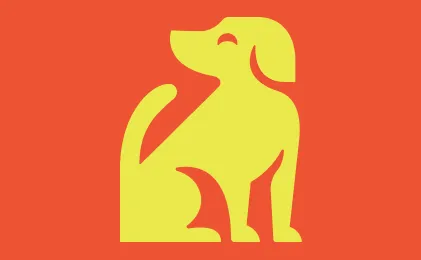Welcoming a dog into your home brings immeasurable joy and companionship, but it also comes with a significant financial commitment. As a prospective or current dog owner in the UK, understanding the Average Monthly Cost Of A Dog Uk is crucial for responsible pet care. While the love they offer is priceless, their upkeep requires careful budgeting and planning. Costs can vary dramatically based on factors like breed, size, age, and health, making it essential to research and prepare for these ongoing expenses. Being financially ready ensures you can provide your furry friend with the best possible life without unexpected burdens. Ensuring you’re well-informed about these financial aspects will help you budget effectively for things like [dog food cost per month uk](https://dogcarestory.com/dog-food-cost-per-month-uk/) and other necessities.
Before diving into the recurring monthly costs, it’s worth noting the initial expenses you’ll encounter. These typically include the purchase price or adoption fee, initial vaccinations, microchipping, neutering/spaying, a starter kit of supplies (bed, bowls, leash, collar, crate, initial toys), and a first vet check-up. These upfront costs can range from a few hundred to several thousand pounds, but once settled, your focus shifts to the ongoing monthly budget.
Detailed Breakdown: Average Monthly Cost of a Dog in the UK
Understanding the individual components of your dog’s monthly budget is key to responsible ownership. While exact figures fluctuate, these categories provide a clear picture of where your money will likely go.
Food Expenses
Food is arguably the largest and most consistent monthly expense for any dog owner. The cost is heavily influenced by your dog’s size, breed, age, activity level, and the quality of food you choose. For instance, a small Chihuahua will consume far less than a large German Shepherd. Premium brands, specialist diets for allergies or health conditions, and raw food diets typically cost more than standard kibble. According to general estimates, you might spend anywhere from £20 to £100+ per month on food alone. Higher quality food, while sometimes pricier upfront, can contribute to better health and potentially lower vet bills in the long run.
Pet Insurance
Pet insurance is a critical consideration that can save you from substantial unexpected veterinary bills. While it adds to your monthly outgoings, it provides peace of mind, especially as your dog ages or if they suffer an accident or develop a chronic illness. The cost of pet insurance varies depending on your dog’s breed (some breeds are prone to specific health issues), age, and even your postcode. As noted by the RSPCA, “Insurance costs are from RSPCA Pet Insurance. Your actual cost will vary depending on your pet’s age and postcode.” [cite: RSPCA] You can expect to pay between £15 and £80 a month for a good quality, lifetime policy. While considering insurance for dogs, it is useful to also compare [cat vet costs per year](https://dogcarestory.com/cat-vet-costs-per-year/) to understand broader pet healthcare financial planning.
Grooming and Essential Supplies
Grooming needs vary significantly by breed. Short-haired breeds may only require occasional brushing, while long-haired or curly-coated breeds (like Poodles or Cocker Spaniels) will need regular professional grooming appointments, which can cost £30-£70 every 6-8 weeks. Even if you groom your dog at home, you’ll incur costs for shampoo, brushes, nail clippers, and other tools. Beyond grooming, essential monthly supplies include [dog walking prices per hour](https://dogcarestory.com/dog-walking-prices-per-hour/) (if you use a professional service), chew toys to keep them entertained and mentally stimulated, and of course, waste bags. The RSPCA also highlights that “Grooming, poo bags and toy costs come from our partner, Pets at Home.” [cite: RSPCA] These ongoing supplies can add £10-£40 to your monthly budget.
 A square illustration of an orange dog
A square illustration of an orange dog
Routine Veterinary Healthcare
Even with pet insurance, routine veterinary care is a necessary monthly expense that often isn’t covered by standard policies. This includes essential preventative treatments such as flea, tick, and worm prevention, which are typically administered monthly or quarterly. Regular health check-ups are also vital for early detection of any potential issues. As the original article states, “Routine health care includes flea, tick and worm treatment. It doesn’t include unexpected or emergency expenses.” [cite: RSPCA] These vital preventative measures can cost approximately £10-£30 per month. When budgeting for a new addition, it’s also wise to consider the [new puppy vet visit cost](https://dogcarestory.com/new-puppy-vet-visit-cost/) as part of your initial financial planning, which might include specific vaccination courses.
 A brown and white dog looking inquisitively at the camera
A brown and white dog looking inquisitively at the camera
Additional and Excluded Costs
It’s important to acknowledge that some significant costs are often excluded from basic monthly estimates but are integral to responsible dog ownership. The RSPCA explicitly states that their estimates “don’t include dental, training, behaviour, walking or boarding.” [cite: RSPCA]
- Dental Care: Professional dental cleaning can be expensive and may be needed periodically, especially for certain breeds.
- Training and Behaviour: Puppy classes, obedience training, or consultations with a behaviourist for specific issues can involve substantial fees.
- Dog Walking and Daycare: If you work long hours or are unable to walk your dog sufficiently, professional dog walkers or daycare services can be a significant monthly cost, ranging from £10-£25 per session.
- Boarding/Pet Sitting: When you go on holiday, you’ll need to factor in the cost of kennels or a pet sitter, which can easily be £20-£50 per day.
- Emergency Fund: It’s always wise to have an emergency fund for your dog, even with insurance, to cover excesses, treatments not covered, or immediate unexpected expenses.
Considering these additional expenses, the total monthly average for a dog in the UK can easily range from £50 to over £200, depending on all the factors discussed.
Factors Influencing Your Dog’s Monthly Expenses
Several variables play a critical role in determining the final monthly cost of owning a dog:
- Breed and Size: Larger breeds generally require more food, larger doses of medication, and potentially more expensive accessories (beds, crates). Certain breeds are also predisposed to health issues that can increase vet bills or insurance premiums.
- Age: Puppies have initial vaccination costs and potentially higher insurance premiums due to their curious nature. Senior dogs may incur more frequent vet visits and medication costs for age-related conditions.
- Health and Diet: Dogs with allergies, chronic illnesses, or specific dietary needs will typically have higher food and medication costs.
- Lifestyle: A highly active dog might need more calorie-dense food and more durable toys. If your lifestyle prevents you from fulfilling all your dog’s needs, you might pay more for services like dog walkers or trainers.
Tips for Managing Dog Ownership Costs
Responsible dog ownership involves smart financial planning. Here are some tips to help manage the expenses:
- Budgeting: Create a detailed monthly budget for your dog and stick to it. Factor in both predictable and potential unpredictable costs.
- Preventive Care: Regular vaccinations, flea/worm treatments, and dental hygiene can prevent more serious (and expensive) health problems down the line.
- DIY Grooming: For breeds with simpler grooming needs, learning to brush, bathe, and trim nails at home can save money.
- Compare Insurance: Shop around for pet insurance policies to find one that offers comprehensive coverage at a competitive price for your dog’s specific needs.
- Quality Food: Investing in high-quality food can contribute to your dog’s overall health, potentially reducing vet visits and associated costs.
 A brown and white dog looking inquisitively at the camera
A brown and white dog looking inquisitively at the camera
Conclusion
The decision to bring a dog into your life is a significant one, bringing immense joy but also substantial responsibility, particularly financial. Understanding the average monthly cost of a dog uk is fundamental to ensuring a healthy and happy life for your pet without undue stress on your finances. From food and insurance to routine vet visits and unexpected emergencies, budgeting for these expenses is an ongoing commitment. By carefully planning and factoring in all potential costs, you can provide the best care for your canine companion. We encourage you to explore our other articles for more detailed guidance on specific dog care topics and continue your journey as a well-prepared dog owner.
References
- RSPCA Pet Cost Calculator and related information: How much will a pet cost? (Referenced for cost categories and specific disclaimers)
- RSPCA Pet Insurance.
- Pets at Home (as a partner for grooming, poo bags, and toys cost estimates).
